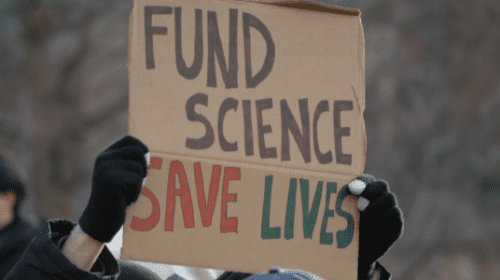Recovery Unplugged hosts our annual Recovery Madness event during The NCAA March Madness Basketball Tournament. This year, we asked our social media followers to vote for their favorite sober musicians, and boy, was it a tight race! Did you participate?
You’ll have to make it to the end of this article to find out who won. In the meantime, let’s talk more about the importance of sober stories, the impact of music on recovery, and the ways sober musicians shape society’s view of addiction and recovery today.
Why is Highlighting Sober Stories Important?
We love to share sober stories at Recovery Unplugged because sharing them can significantly impact those struggling with addiction and the storytellers themselves. Sober stories can help bring about positive change for the people and communities affected by addiction.
We think sharing stories is an essential part of the recovery journey. Think of it as a form of “giving back,” which helps strengthen your recovery and prevent relapse. Sharing how far you’ve come gives hope to those still struggling and reminds you of your sobriety achievements too.
In addition, sharing stories of hope and healing in recovery helps others feel seen. Addiction can be a very lonely place, and recovery can feel that way sometimes too. That’s why talking openly about our struggles and acknowledging how hard we’ve worked to overcome them is important.
Increases awareness and reduces stigma
Telling sober stories educates the public about addiction, including its causes, symptoms, and treatment options. These are real-life stories from people who have achieved sobriety, and they can help to dispel myths and misconceptions and promote a more accurate understanding of addiction.
Sharing sober stories sheds light on the struggles and triumphs of individuals who have gone through addiction and achieved sobriety. These stories give a voice to a group of people who have historically been stigmatized and silenced.
The more we openly discuss addiction and recovery, the more we decrease the associated stigma. The shame and guilt associated with addiction can prevent people from seeking help or limit their awareness of recovery opportunities. Talking openly helps lower that barrier.
Encourages people to get support
There’s something about hearing someone tell a story that’s similar to yours. It makes us feel seen. Sharing sober stories can offer hope and motivate others to seek help for their addiction.
Sharing stories of addiction and recovery provides a sense of community and support for those who need it most. Support is one of the keys to having a successful recovery.
Advocates for change
Sharing our recovery stories can be a powerful tool for raising awareness about the challenges faced by those in recovery, especially those in marginalized groups. It helps advocate for better access to treatment, improved policies around addiction, and increased funding for research and support.
The Impact of Music on Recovery
Music has power. And it can play an influential role in addiction recovery. Listening to or playing music can elicit a strong emotional response, which makes it an effective tool for coping with difficult emotions. For this reason, music is a large part of the recovery process at Recovery Unplugged.
Music also provides a healthy outlet for emotions for people who are going through intense withdrawal symptoms. Listening to music that reflects either experience or brings them to a more peaceful place helps people feel understood and supported. Music can help them find comfort and hope that they’re not going through this alone.
Similarly, music can be a powerful motivator for treatment. It can encourage people to stay focused on the path to recovery. Listening to upbeat and uplifting music inspires hope and perseverance. This helps people find the strength and courage to overcome their struggles with addiction. Music can also help individuals focus on their recovery goals and remind them how far they’ve come.
Music-Assisted Treatment (MAT)
At Recovery Unplugged, music is our medicine. We use music in all of our treatment programs. Research has shown that music can be an effective tool for addiction treatment as it helps people explore their emotions and develop new coping strategies. It also serves as a boost for their self-esteem and improves their social skills.
At Recovery Unplugged, our music-assisted treatment comes in many forms, from simply listening to music, playing an instrument, or singing, to creating your own music. You don’t have to be a musician to be in our recovery programs. You just have to like music.
Music brings people together. It creates a sense of community and support for those in treatment. Individuals can connect with others who share their taste in music and form meaningful relationships through shared personal experiences. A strong sense of belonging is vital in achieving and maintaining sobriety.
The Rise and Impact of Sober Musicians
In recent years, we’ve seen several high-profile musicians speak publicly about their struggles with addiction, including Eminem, Demi Lovato, and Macklemore. This has helped remove the stigma around sobriety and inspired others to seek help.
The rising trend of sober musicians is attributed to various factors, including an increased awareness of the adverse physical and mental health effects of drugs and alcohol, a shift towards a more health-conscious lifestyle, and a desire for authenticity and honesty in the music industry.
The media, especially social media, has also played a large part in this trend. Before everything was found online, partying was done privately, and you could keep your substance use a secret. Today, if celebs make one wrong move, the entire world knows about it. This also makes admitting they need help or entering addiction treatment programs more challenging. The paparazzi follow celebrities wherever they go, showcasing their every move to the world.
Impact
Sober musicians have significantly and positively impacted the music industry and their fans. Many artists who have chosen a sober lifestyle are seen as role models, especially for those also struggling with addiction. Sharing their stories has helped build a supportive community and inspired others to seek help.
Music created by sober musicians often reflects a message of hope, healing, and self-discovery. Many of these artists turn to music as a tool to convey their personal struggles and inspire others to make healthy choices for their own lives. This introduces a new level of authenticity and vulnerability to the music industry, which has helped to foster a deeper connection between musicians and their fans.
Sobriety and the Music Industry
The music industry has long been associated with partying and a club-like atmosphere. Because musicians can be on the road for months at a time, performing night after night in different cities and countries, the pressure to maintain a particular image is demanding.
Not only do they have to give off the “rockstar vibe,” they have to keep up with the demands of the industry and meet fan expectations. It can all be highly stressful. This pressure can increase their risk of using drugs or alcohol to cope.
Going on tour can be incredibly challenging for music artists in recovery. They lack sleep and have a constant temptation to use substances. This can make it difficult to stay on a clean and sober path. For many, the touring lifestyle is a recipe for relapse.
Support systems are crucial for everyone in recovery, especially those in the music industry. If artists are traveling, they may need their support people to travel with them. This could include a sponsor or coach to guide them as needed.
Sober musicians have adequate support systems to help them maintain their sobriety on and off the road. These systems look different for each person, but some choose to have family and friends, fellow artists, sober support groups, and mental health professionals nearby or available by phone.
Additionally, this influence can be seen in the music industry’s increasing number of recovery-based events and organizations. MusiCares is a non-profit organization providing a range of services to musicians in need, including recovery support. Each year there are events to celebrate the achievements of music artists who have overcome addiction and promote the message of hope and recovery.
Music is Our Medicine
If you’re in recovery, we encourage you to incorporate music into your healing journey. Consider how music shows up in your life. And the next time you feel down, turn on your favorite tunes.
If you need help getting started with recovery from drugs or alcohol, call Recovery Unplugged today at 1 (855) 975-1757. Our admissions staff is available 24/7 every day of the year.
And the winner is…
Eminem!
After a month of voting for your favorite artists daily, The Real Slim Shady earned his spot at the top of the rankings with a landslide vote against Steven Tyler. We think it was a very well-deserved win for Eminem.
Eminem has been sober since April 20, 2008. The rapper told Vanity Fair that at one point, he was taking 75 to 80 Valium a night. We are so happy for Eminem and hope he stays clean and sober.
To celebrate the 20th anniversary of his fourth studio album, The Eminem Show, he’s planning a 2023 tour and has launched some pretty sweet merchandise, but don’t take our word for it! You can find more information on his website.

























